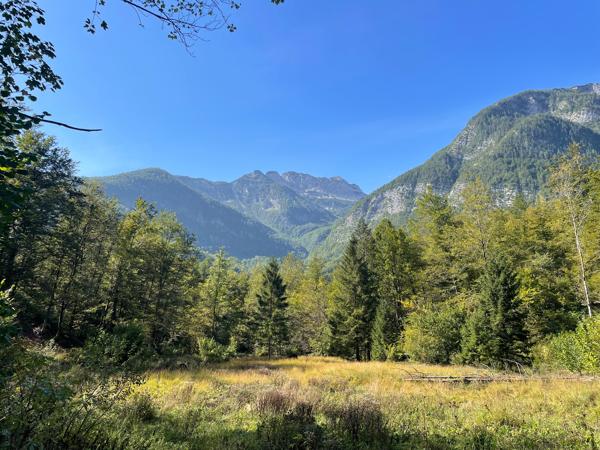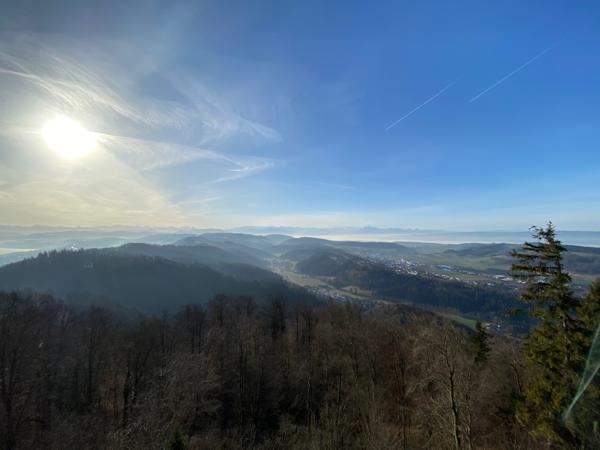Mountaintop moments
Last weekend, I was in Edinburgh for the Fringe, and I’m so glad I went. I met new people, hung out with some Internet friends in-person, and saw some great theatre. It was fun, but also exhausting. By the final day, I was worn out and ready to sleep in my own bed – but now I’m home, I feel a bit sad to have left it all behind. I’ve had a deliberately quiet week – partly to rest, partly to give those happy memories time to sink in.
This happens to me a lot: I do something exciting, it tires me out and I want to go home. But once I’m back, I miss the excitement and I’m sad that it’s over.
I call events like these mountaintop moments. They’re any event or experience that lets us escape from our normal lives. Atop the metaphorical mountain, the air is cleaner, the sky and stars get closer, and the view stretches out in front of us. Given a temporary break from our usual routine, the world seems larger and more intense.
Being on the mountaintop gives us space to grow, and we can’t help but be changed by the experience. We have new adventures, we try new ideas, we meet new friends – and we learn more about ourselves. We need these transformative events in our lives.
But exciting as they are, eventually we have to come down from the mountain, and that hurts. All the energy and emotion is drained away as we return to our regular lives.
After a mountaintop moment, normal life can feel dull and subdued. I always feel a bit miserable after a big event, and it takes me a few days to readjust. I’m glad to return to the familiarity of my routine, and have a chance to rest – but I remember the emotional high, and that’s hard to match in my day-to-day.
In the immediate aftermath, it’s tempting to wonder if we can stay on the mountain. What if we didn’t come down? What if we made this our life?
But we can’t stay there – if we want them to be elevated, transformative experiences, they have to be set apart from our daily lives. If we stay on the top of the mountain, it stops being a mountaintop to us. It would stop feeling special, and start to feel mundane. (How many people see less of their home than tourists, because it doesn’t seem remarkable to them?)
The point of the mountaintop is that we come back down. It’s a place to escape from our lives, yes, but it’s also a place to learn and grow. We come down, and we bring everything we learnt with us. We need to use our experience on the mountaintop to find ways to make our normal life better. Otherwise, what was the point of going up there?
We had an amazing moment, and eventually it’s over, and that’s sad. What comes next is focusing on the lessons we learned, the friendships we built, the experiences we had – and how we bring those into our lives, and use them to become a better person.

Before COVID, I was a regular attendee at PyCon UK, and those events were always a mountaintop moment. I got to spend a week in Cardiff, hang out with friends I only saw once a year, and learn cool stuff about Python. I always enjoyed myself, but I was worn out by the end of the final day.
PyCon UK 2017 ended on October 30th, and that same week Ash McAllan tweeted a thread about “mountaintop experiences”. She was talking about a completely different conference, but it was the same pattern – a big and exciting event, followed by an emotional crash.
When I read her thread, there was an instant resonance – I was having the feelings that she described. She talked about post-conference depression, and invited us to consider how we can grow from this sort of experience:
You go to the mountaintop to escape your life and to change. If you don’t go back down, and take that change, that growth, that development, those opportunities with you, what was the point?
This framing stuck in my brain, and I still think about it regularly.
Before I read this thread, I’d wallow in sadness after a big event, and wait for the memories to fade. Now, I still let myself grieve for the thing that’s over – but I also ask myself what I want to change in my life, and what I want to learn from those feelings.
This week I’m sad that I’m no longer in Edinburgh, because there were more shows I wanted to see. (I think everyone who goes to Fringe feels that.) While I was there, I saw several plays that dealt with heavy topics like heartbreak and grief. They left me really emotional, and in three days I sobbed my way through a whole packet of tissues.
I love that sort of theatre, and it makes me want to write something that makes people feel things. That’s a change from the technical prose I usually write, where I’m trying to be informative, not evocative. Writing about feelings and emotions is daunting, which is why I keep shying away from it. I’m only going to get better if I practice, and that’s why I’m writing this article.
I want to describe the feeling of mountaintop moments my own words, and reflect on what they’ve meant to me. I’ve shared this idea with friends when they’re struggling with post-event blues, and I’d like to think it’s helped at least a few of them. I hope it can help you too.

I’ve learnt lots of things from mountaintop moments, and I’ve definitely changed my behaviour as a result of them. It’s hard to point to a single, major change – it’s more a series of small course corrections, gradually finding ways to improve my life.
I wanted to share one example of these changes, to ground this discussion.
Mountaintop moments help me spot habits I should try to kick. Whenever I go on a trip, I’m more intentional about how I spend my time – I’m trying to make good use of the limited time I have in a new place. This means I end up dropping a lot of my routines, and not all of them need to come back when I’m home.
For example, I’ve wasted a lot of time with screens, mindlessly scrolling on social media. I don’t do much of that when I go away, because I’m trying to make the most of the place I’m visiting. I still use my technology, but in a more pragmatic way – for example, in Edinburgh, I opened Discord to arrange to meet friends, then closed it as soon as we agreed a time and place.
I’m trying to be more intentional about how I use digital technology, and the times when I go without it have definitely helped. I go away for a week, I stop looking at social media, and nothing bad happens. Do that enough times, and the message sinks in.
When I went to Paris this past spring I logged out of all social media on my phone, and I never logged back in. I haven’t stopped using social media entirely, because there are still good things about it – but I’m not the Twitter completionist I used to be.
I have a complicated relationship with technology, and I’m still struggling to find the right balance. Whenever I go away, I’m reminded of how nice it feels not to fritter away my time, and it motivates me to keep trying to find a better balance in my daily life.
I think I can see small signs of progress. I think I’m getting better. But I can’t take these changes for granted – I need to remind myself of these lessons, and make sure I don’t forget what I learned on the mountaintop.